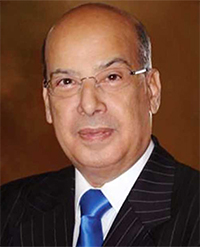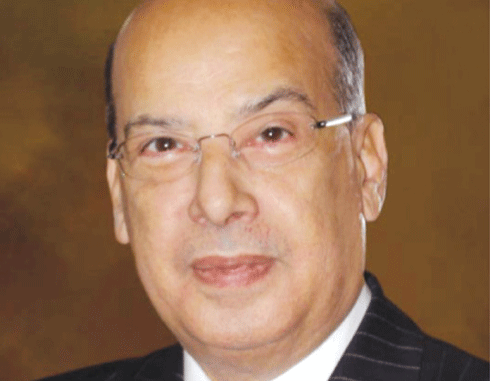
The debate, particularly on social media, following the decision by Ross University School of Medicine to relocate from Dominica to Barbados, is about the wrong issue.
Instead of focussing, incorrectly as it turns out, on the belief that the Mia Mottley administration poached Ross from Dominica, the debate should centre on yet another disastrous effect of Climate Change on Caribbean countries – this time on investment.
Ross’ principals made the decision to migrate from Dominica because, unfortunately, whereas that island has suffered repeated and destructive hurricanes, Barbados has remained outside of the main hurricane path for 65 years this year. Therefore, as an investment decision, if a business is weighing-up options in the Caribbean, it is prudent to opt for a location where hurricanes are less likely.
After 40 years of close association with Dominica in which it benefitted from tax waivers and other incentives, none of which was threatened, Ross had little reason to consider departing Dominica, other than suffering destruction and disruption of hurricanes.
There was no need for the Mottley administration to poach Ross. It is clear Ross itself was looking for a safer home.
If anything, the mistake Ms. Mottley made was not explaining the details on August 3 when she and Ross’ representative announced that the University was setting-up shop in Barbados.
Had she made the explanation on August 3 that she did on August 7, by which time toxic accusations had poisoned the Caribbean atmosphere, there may have been a clearer understanding by all.
On August 7, Ms. Mottley said the following: “Barbados came into the picture, only when, for Ross University, returning to Dominica for the start of the January semester in 2019, was not an option…
“We enquired of Ross, whether all options and scenarios had been explored and fully exhausted.
“We spoke with officials of the Dominican Government who were still hopeful of a return of the school, but who conceded that a January start-up was highly unlikely given their circumstances.
“It was only after Dominica was ruled out for the January start-up of classes and when attention had turned to at least two other potential locations in the region, two sister Caribbean islands, that Barbados then embraced the idea of making itself available as a possible site for relocation”.
Ross was heading out of Dominica because it had already incurred huge expenditure fulfilling its obligations to its client-students and others since September last year when the island was devastated, and because it has to hedge its bets in the future against repeated and costly recurrences of hurricane damage and destruction.
In May 2018, the European Bank for Reconstruction and Development (EBRD) and the Global Centre of Excellence on Climate Adaptation organized a conference on physical climate risks and opportunities at EBRD’s headquarters in London. Discussions focused on experiences and opportunities associated with managing these risks and on how to include them in financial disclosures.
The Bank released its recommendations for companies in a report titled, ‘Advancing TCFD Guidance on Physical Climate Risks and Opportunities.’ In it, the EBRD recommends companies to perform forward-looking risk assessments and disclose material exposure to climate hazards such as floods, water stress, extreme heat, storms and sea level rise.
Publicly traded companies especially were advised to disclose the likely impact of climate change on their investment. Failure to make such a disclosure to their shareholders could result in horrendous law suits.
So, the reality is that investment decisions are now caught-up in Climate Change. It has joined many others including the creation of refugees, the loss of territory, and threats to the existence of age-old nations.
Caribbean Community (CARICOM) countries should eschew the accusatory and unproductive hullabaloo over Ross’ decision to move from Dominica to Barbados. Instead, focus should turn to the real lesson that emerges from the event which is the imperative of ratcheting-up Caribbean efforts to fight Climate Change by confronting the governments of the profligate countries that are killing island-states and others by a thousand cuts.
At the 2015 Paris climate summit, small island states raised their voices in unison to pressure big polluting countries to accept the goal of limiting global warming to 1.5 degrees Celsius, rather than two degrees, over the pre-industrial level. But those were words on paper; quickly forgotten and in one case completely abandoned. Temperatures are already at 1 degree Celsius and heading rapidly toward two degrees.
I recall well the fretfulness of a former Prime Minister of Kiribati, Sir Ieremia Tabai, who served with me on the Eminent Persons Group that produced a report on Commonwealth reform in 2011. He desperately wanted to find a major investor for a hotel in Kiribati. Today, Kiribati has had to purchase about eight square miles on the Fijian island of Vanua Levu for a little less than $9 million, potentially to move its population there one day. Sir Ieremia’s nation is facing extinction.
There has been too much hot air and too little action over Climate Change. By now every small island state should have had a Minister of Government and a department dedicated to fighting this issue every day and everywhere. It is the region’s greatest challenge.
The Green Climate Fund has been more a repository of dreams and illusion than of reality and delivery. Right now, the Fund has just over $1 billion left to allocate from its start-up donations. There is no agreement on how money will be delivered and what its priorities will be.
The World Bank Group delivered $20.5 billion in climate-related finance in the last fiscal year, but while that helps to build climate resilience in some states, it does nothing to stop or even to curb the disregard that is driving the destructive forces of Climate Change.
Last September at the United Nations, Dominica’s Prime Minister, Roosevelt Skerrit, declared: “We are shouldering the consequences of the actions of others. There is little time left for action. While the big countries talk, the small island nations suffer. We need action and we need it now.”
Dominica has just experienced yet another blow from Climate Change – investment, too, is not secure and it has nothing to do with poaching.
There is another Climate Conference in December in Bangkok. Caribbean countries should raise the banner, bang the drum, and rail against the coming of the night between now and then.
(The writer is Antigua and Barbuda’s Ambassador to the United States and the OAS, and non-resident High Commissioner to Canada. The views expressed are his own)
Responses and previous commentaries: www.sirronaldsanders.com.













